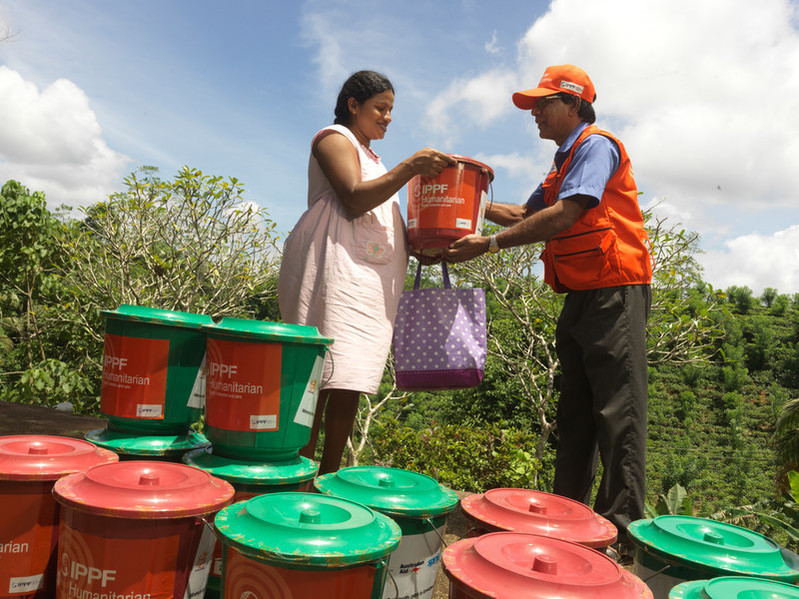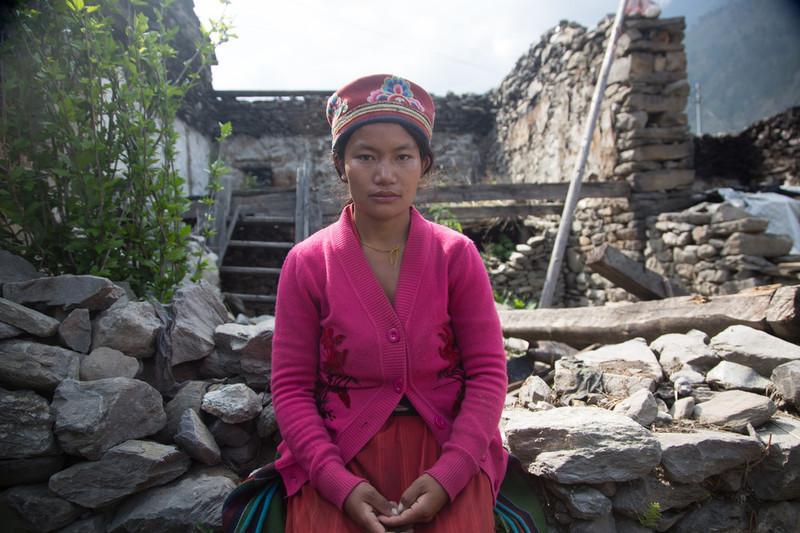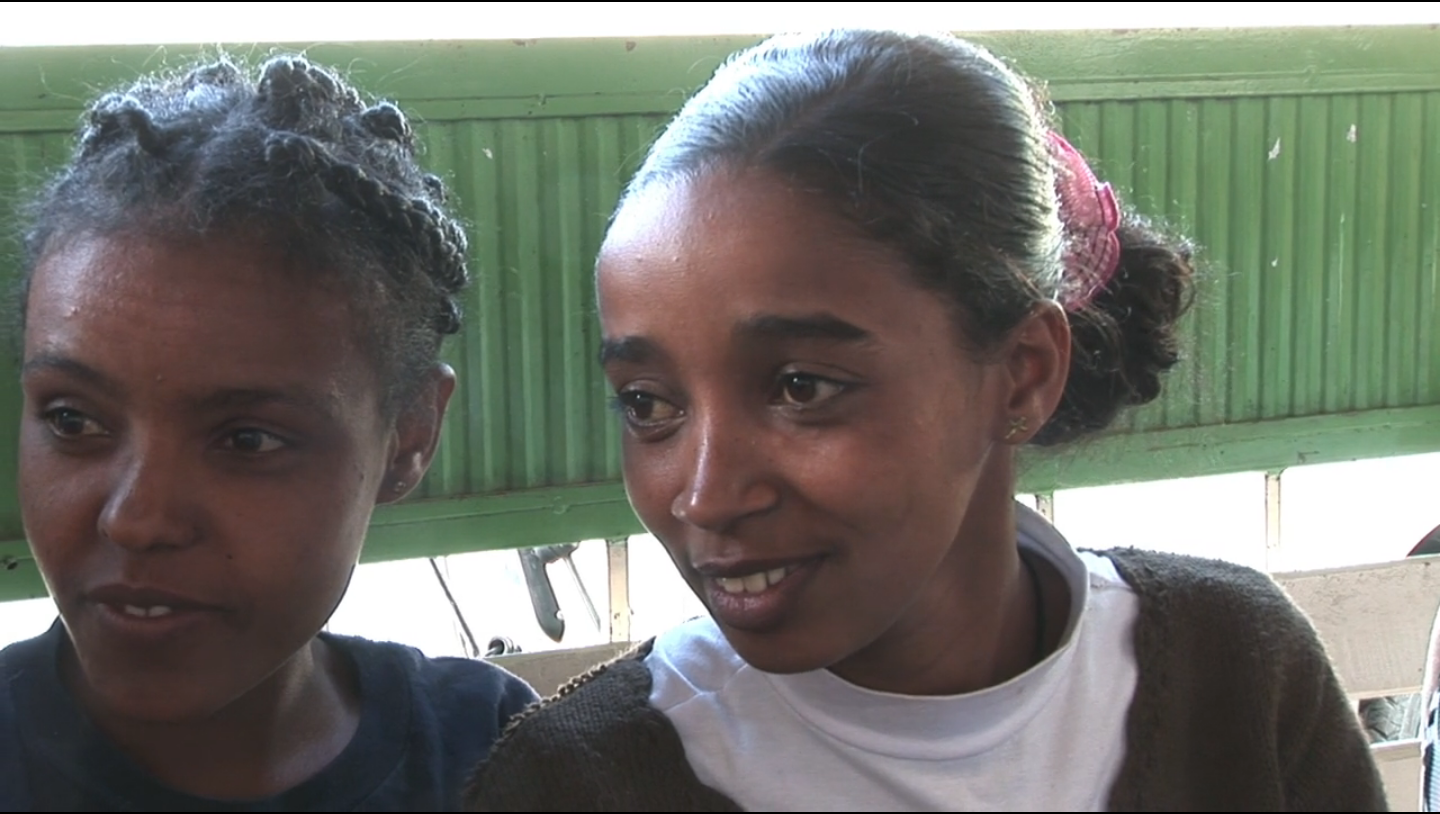Spotlight
A selection of resources from across the Federation

HIV Theory of Change
Our HIV Theory of Change is to clarify the goals and vision of IPPF’s HIV programme and to articulate the different pathways and strategies IPPF uses to contribute towards its HIV goals and vision.
Filter our resources by:


| 23 August 2017
Over 1,000 dignity kits distributed after flash floods in Sri Lanka
Incessant rains across Sri Lanka during May 2017 affected over half a million people in seven districts. Most affected was the Ratnapura district where over 20,000 people faced flash floods, and where 46 deaths were reported. IPPF Humanitarian, in partnership with FPA Sri Lanka, responded to this catastrophe through the distribution of over 1,000 dignity kits in Ratnapura. Stories Read more stories about our humanitarian work in Sri Lanka during the floods

| 19 July 2017
Taking health and care to rural mountain villages when disaster strikes
The earthquake that struck Nepal in April 2015 caused devastation and destruction that the country has still not recovered from. Almost 9,000 people lost their lives and over 22,000 were injured in Nepal’s worst natural disaster for 80 years. The earthquake severely disrupted access to healthcare and family planning. Thousands of people were displaced far from their usual clinics or support networks. In the days and weeks after the earthquake, the Family Planning Association of Nepal (FPAN) took action to make people’s health and family planning needs a top priority. Within 48 hours they were running emergency health camps across the country, dispensing medicines and bringing vital, changing support to thousands of survivors. Photography © IPPF/Jon Spaull

| 03 May 2017
Providing access to safe abortion and sexual health services for sex workers
Many sex workers in Uganda end up having unwanted pregnancies often resorting to unsafe abortions. There are many myths and misconceptions about contraception as well as a lack of access. This issue was one of the reasons why Lady Mermaid's Bureau (LMB), a sex workers rights organisation from Kampala, decided to apply for a grant from the Safe Abortion Action Fund (SAAF) in 2013. Founded in 2002 by a group of former sex workers, the Lady Mermaid's Bureau, the first organization of its kind in the region, works to prevent and reduce unsafe abortions amongst sex workers in Uganda and campaigns to decriminalize abortion and sex work. The Safe Abortion Action Fund (SAAF) which is hosted by IPPF was set up in 2006 in order to support grass-roots organisations to increase access to safe abortion. Photography © IPPF/Tommy Trenchard

| 11 April 2017
IPPF at the She Decides Conference, Brussels, 2017
In response to President Trump's reinstatement of the Global Gag Rule 50 countries and leading civil society organizations rallied together. The aim of the She Decides Conference was for these governments to reaffirm their commitments to sexual and reproductive health and rights. These are human rights which are now at risk around the world because the Global Gag Rule blocks critical USAID funding to health organizations like IPPF. IPPF is losing $100m in funding from USAID which means programs to deliver life-saving health services will be jeopardised. With increased commitments from other leading governments around the world, civil society organizations like IPPF can continue to provide the access to service and information that millions of women need.
| 05 April 2017
Improving the sexual health of young people after Cyclone Winston, Fiji
Even before Cyclone Winston, there was very little knowledge about contraception and sexually transmitted infections in Fiji. IPPF health professionals are now providing the affected population with counselling and advice on family planning and sexual health.
| 01 April 2017
Discovering family planning by surviving Cyclone Winston, Fiji
For many mothers in Fiji, the IPPF outreach established after the Cyclone Winston were the first place where they heard about family planning. They can now decide how many children they want. Read more stories















